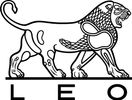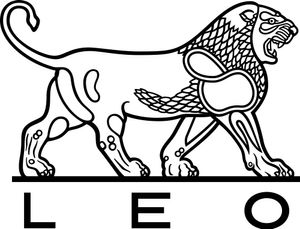Adtralza® (tralokinumab) achieves primary and secondary endpoints in Phase 3 trial of adolescents with moderate-to-severe atopic dermatitis
- Sixteen-week results from the Phase 3 ECZTRA 6 trial in adolescents showed tralokinumab 150 mg and 300 mg significantly improved measures of efficacy compared to placebo1
- Tralokinumab was generally well-tolerated with an overall frequency and severity of adverse events comparable with placebo, consistent with that observed in adults in Phase 3 trials1
BALLERUP, Denmark, October 22, 2021 – LEO Pharma A/S, a global leader in medical dermatology, today announced 16-week results of a 52-week monotherapy trial showing tralokinumab significantly improved primary and secondary measurements of efficacy among adolescents (aged 12 to 17) with moderate-to-severe atopic dermatitis.1 The week 16 results from the Phase 3 ECZTRA 6 trial were shared during the 2021 Fall Clinical Dermatology Conference held virtually and with a hybrid option in Las Vegas.
Tralokinumab is a high-affinity, human monoclonal antibody that specifically binds to and inhibits IL-13, a key driver of atopic dermatitis signs and symptoms.2,3It has been approved as Adtralza for the treatment of adults with moderate to severe atopic dermatitis by the European Commission and by the MHRA in June 2021 and by Health Canada in October 2021.
“After 16 weeks, adolescents who received either dose of tralokinumab, without rescue therapy, showed significantly greater improvement in atopic dermatitis signs and symptoms and quality of life compared to those receiving placebo,” said Amy Paller, MD, Chair, Department of Dermatology, Feinberg School of Medicine, Northwestern University in Chicago, Illinois, and the international coordinating investigator for ECZTRA 6. “These findings are encouraging, as moderate-to-severe atopic dermatitis can have major physical and psychosocial impacts on adolescents who have limited options for long-term treatment.”
The 16-week initial treatment period of the ECZTRA 6 trial (NCT03526861) assessed the efficacy and safety of tralokinumab 150 mg (n=98) or 300 mg (n=97) every two weeks (Q2W) compared to placebo (n=94) in adolescents.1 At week 16,tralokinumab met its primary and secondary endpoints,showing that significantly more patients treated with tralokinumab achieved a clinical response, compared to placebo, defined as achieving an IGA 0/1 and/or an EASI 751:
- 21.4% (p<0.001) of the tralokinumab 150 mg group and 17.5% (p=0.002) of the tralokinumab 300 mg group achieved clear or almost-clear skin compared to 4.3% with placebo as measured by IGA.1
- 28.6% (p<0.001) of the tralokinumab 150 mg group and 27.8% (p=0.001) of the tralokinumab 300 mg group achieved 75% or greater disease improvement from baseline compared to 6.4% with placebo as measured by EASI.1
Secondary endpoints were all met, addressing extent and severity of atopic dermatitis (SCORAD), achieving at least a 4-point improvement in adolescent weekly average worst daily pruritus NRS score, and health-related quality of life related to dermatological conditions (CDLQI).1
The safety and tolerability of tralokinumab compared with placebo, when used to treat adolescents with moderate-to-severe atopic dermatitis, was also investigated. The overall frequency and severity of adverse events (AEs) in the trial were comparable across the treatment groups over 16 weeks (67% for tralokinumab 150 mg, 65% for tralokinumab 300 mg, and 62% for placebo).1
The percentage of AEs, serious AEs, AEs leading to discontinuation and conjunctivitis events were similar between both doses of tralokinumab (150mg and 300mg) and placebo treatment groups in the initial treatment period of 16 weeks. Most AEs in the three treatment groups were mild or moderate in severity and subjects recovered from most.1 The safety results were consistent with the Phase 3 adult tralokinumab trials.1
"We are encouraged by these results that advance our understanding of tralokinumab in adolescents, many of whom often struggle with the negative emotional and physical impacts of atopic dermatitis,” said Jörg Möller, MD, Executive Vice President, Global Research and Development, LEO Pharma. “This is an important milestone for the overall ECZTRA clinical trial program as we expand studies to include younger patients."
To view the full presentation, please visit https://www.leopharmaposters.net/login?returnUrl=/fall-clinical-dermatology-2021/postercollection211008
About the ECZTRA 6 Trial
ECZTRA 6 (ECZema TRAlokinumab trial No. 6, NCT03526861) is a randomized, double-blind, placebo-controlled, parallel-group, multinational 52-week trial, including a total of 301 patients (aged 12 to 17), with 289 (195 tralokinumab patients and 94 placebo patients) in the full analysis set, evaluating the efficacy and safety of tralokinumab (150 mg or 300 mg) as a monotherapy compared to placebo in adolescents with moderate-to-severe atopic dermatitis who were candidates for systemic therapy.1,4
Following a washout period, patients were randomized to subcutaneous tralokinumab 150 mg or 300 mg Q2W, or placebo for an initial 16 weeks.Tralokinumab dosing started with a 300 mg or 600 mg loading dose on day 0 for those receiving tralokinumab 150 mg or 300 mg Q2W, respectively.1
At week 16, patients who responded to tralokinumab with an IGA score of 0/1 and/or EASI change of at least 75% from baseline, without use of rescue treatment, were re-randomized to tralokinumab Q2W or Q4W for an additional 36 weeks.Patients not achieving primary endpoints at week 16, those receiving rescue treatment from week 2 to week 16, and those meeting other specific criteria were transferred to open-label treatment of tralokinumab 300 mg Q2W plus optional mild-to-moderate strength topical corticosteroids.1
About atopic dermatitis
Atopic dermatitis is a chronic, inflammatory, skin disease characterized by intense itch and eczematous lesions.5 Atopic dermatitis is the result of skin barrier dysfunction and immune dysregulation, leading to chronic inflammation.6 Type 2 cytokines, including IL-13, play a central role in the key aspects of atopic dermatitis pathophysiology.2
References
- Paller A. Efficacy and safety of tralokinumab in adolescents with moderate-to-severe atopic dermatitis: results of the phase 3 ECZTRA 6 trial. Fall Clinical. Oct. 21-24, 2021. Poster Presentation.
- Bieber T. Interleukin-13: targeting an underestimated cytokine in atopic dermatitis. Allergy. 2020; 75:54-62.
- Popovic B, et al. Structural characterisation reveals mechanism of IL-13-neutralising monoclonal antibody tralokinumab as inhibition of binding to IL-13Rα1 and IL-13Rα2. J Mol Biol. 2017; 429:208–19.
- ClinicalTrials.gov. Tralokinumab Monotherapy for Adolescent Subjects With Moderate to Severe Atopic Dermatitis - ECZTRA 6 (ECZema TRAlokinumab Trial no. 6). https://clinicaltrials.gov/ct2/show/NCT03526861.
- Weidinger S, et al. Atopic dermatitis. Lancet. 2016; 387:1109-1122.
- Boguniewicz M, et al. Atopic dermatitis: a disease of altered skin barrier and immune dysregulation. Immunol Rev. 2011;242(1):233-46.
Contacts
Henrik Heskjaer
Global External Communications
+45 3140 6180
hdtdk@leo-pharma.com
About LEO Pharma
About LEO Pharma
LEO Pharma helps people achieve healthy skin. The company is a leader in medical dermatology with a robust R&D pipeline, a wide range of therapies and a pioneering spirit. Founded in 1908 and majority owned by the LEO Foundation, LEO Pharma has devoted decades of research and development to advance the science of dermatology, setting new standards of care for people with skin conditions. LEO Pharma is headquartered in Denmark with a global team of 6,000 people, serving 93 million patients in 130 countries. In 2020, the company generated net sales of DKK 10,133 million. For more information, please visit www.LEO-Pharma.com.
Subscribe to releases from LEO Pharma
Subscribe to all the latest releases from LEO Pharma by registering your e-mail address below. You can unsubscribe at any time.
Latest releases from LEO Pharma
LEO Pharma advances Anzupgo® (delgocitinib) cream to phase 3 trial in lichen sclerosus (LS)21.1.2026 09:00:00 CET | Pressemeddelelse
The phase 3 trial DELTA CARE 1 will recruit up to 652 adult patients with lichen sclerosus (LS) to investigate the efficacy and safety of delgocitinib cream compared to cream vehicle.1 The study initiation in LS is part of LEO Pharma's ambition to explore Anzupgo (delgocitinib) creme in additional indications beyond Chronic Hand Eczema (CHE), investigating the potential of delgocitinib as treatment option in skin diseases with high unmet medical need. There are currently no approved treatments specifically indicated for LS in the U.S. or in Europe. Delgocitinib cream has been shown to inhibit the activity of all four JAKs,2,3 making it a potential treatment option for people living with LS disease.
LEO Pharma to present at the 44th annual J.P. Morgan Healthcare Conference7.1.2026 13:00:00 CET | Pressemeddelelse
Ballerup, Denmark, January 7, 2026 – LEO Pharma, a global leader in medical dermatology, announced today that CEO Christophe Bourdon will deliver a company update at the 44th Annual J.P. Morgan Healthcare Conference in San Francisco on Tuesday, January 13, 2026, at 9:00 AM PST. With over 60 years of specialist expertise in medical dermatology and more than 90 million patients served in 70+ markets, LEO Pharma is uniquely positioned in one of healthcare’s most attractive and underserved sectors. Backed by an unmatched portfolio combining category‑leading brands with first‑in‑class innovations, the company is redefining standards of care for patients with high unmet needs. Entering 2026, LEO Pharma builds on the strong momentum of recent years, marked by robust top-line growth, significant margin expansion, and a promising pipeline. Leveraging its unique global platform, the LEO Pharma is advancing innovation as the preferred partner in medical dermatology. The J.P. Morgan Healthcare Con
LEO Pharma appoints Marika Murto to lead Global Product Strategy16.12.2025 09:00:00 CET | Pressemeddelelse
Marika Murto brings over 20 years of pharmaceutical expertise in product strategy, innovation, and business transformation Her appointment as SVP of Global Product Strategy will help unlock LEO Pharma’s portfolio potential, driving patient impact and supporting sustainable growth
LEO Pharma submits adolescent label expansion application for Anzupgo® to EMA15.12.2025 09:00:00 CET | Pressemeddelelse
LEO Pharma has submitted a label expansion application to EMA to expand Anzupgo® (delgocitinib) cream to adolescent patients (12–17 years) with moderate to severe chronic hand eczema (CHE) for whom topical corticosteroids are inadequate or inappropriate – the application has been accepted for review. The application is supported by results from DELTA TEEN, a phase 3 trial investigating efficacy and safety of Anzupgo® in adolescents with moderate to severe chronic hand eczema (CHE).1 The label expansion submission for adolescent patients demonstrates LEO Pharma's commitment to investigating use within relevant sub-populations where treatments can help make a fundamental difference for patients with skin diseases.
LEO Pharma Announces Positive Topline 32-Week Key Results in ADHAND Trial17.11.2025 09:00:00 CET | Pressemeddelelse
The ADHAND trial evaluates the efficacy and safety of tralokinumab in adult patients living with atopic dermatitis with moderate-to-severe hand involvement,1 a high burden, high unmet need population.2 At Week 16, tralokinumab showed statistically significant improvement compared to placebo in all primary and key secondary endpoints such as clear or almost clear skin, itch and pain.3 The 32-week results of the ADHAND trial builds on the positive findings observed at Week 16.
In our pressroom you can read all our latest releases, find our press contacts, images, documents and other relevant information about us.
Visit our pressroom
